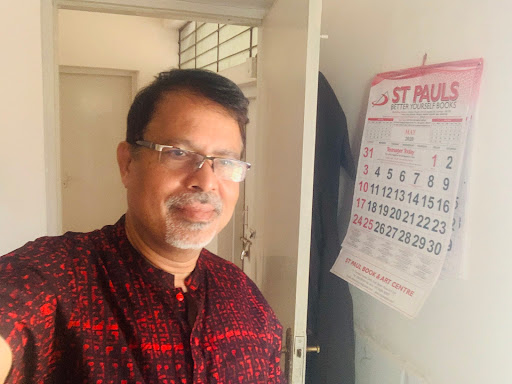There
is a human tendency to blame and find a fault with the other. The other is
responsible for what one is. The other does not live his life so one is
disturbed and annoyed. But the fact that one is religious or priest is not
because the other one has called or invited. The call is from God and so it is
ones primary duty to follow HIM alone and not get carried away and disturbed by
the life of the other who does not live
according to Charism and the constitutions.
One
is called to be part of one particular charism and spirituality and it is
understood that one is fully inserted into it. One studies, reflects and lives
what one in faith has accepted. So it should not then become like the others don’t
live and follow what they have promise so why should I? Am I going to depend on
others to live my call and charism? Am I going to look out for those faithful
ones who live it? There are comparisons made between the so-called good and bad
ones. It goes beyond our fraternal charity and concern. One becomes like a
judge all the time of the other. One is just waiting for someone to make a
mistake and then announce it from the housetop.
I have an impression that we have interpersonal and fraternal
relationship problems, which are often given inadequate attention by
communities. Each friar in a community has a particular and unique personality
style that has been shaped by the lifetime of their experience. After you have
been working together for awhile, you can find out that there are driver types
and quiet folk, expressive, analytical, reserved, shy, reactive friars in our
community. As the community gets into conflicts, the elements of group dynamics
and personality style need to be taken into account by the superior of the
community.
It is important to make, even at a surface level, some
determination about yourself and how you are likely to affect the community.
Ask yourself: Do I talk a lot, or very little? Am I confident about my ideas
and myself? Do I listen to others well, or am I impatient having to listen to
others? Am I empathetic to others or do I care mostly about getting the task
done? When others speak, am I listening to what they say, or thinking about
what I am going to say? Am I quick to anger? Am I defensive or accepting when
someone talks about my behavior? Do I ramble or am I a bulleted list sort of
person? What makes me annoyed? What makes me feel good?
One of the most common sources of conflict and angst in
community is the friction between “the doers and the talkers". This
dichotomy between task and process is very common and is often a source of
conflict and frustration in community. A
healthy community has a balance between task and process. Think of task and
process like the wings of a bird. If one wing is shorter than the other, the
bird flies around in circles. If there is mostly task and little process, the
frictions between people will erupt into communication problems and the
resulting conflicts keep tasks from moving forward. However, when task and
process are balanced, both wings are working at maximum efficiency to carry the
community in the direction it wants to go. You need process to determine the
direction to go and how to work together; you need task orientation to accomplish
all the jobs needed.
There can be undercurrents of bad feelings in our community
which don't get talked about. One technique that can bring this out is to do a
feeling circle, in which everyone in the community expresses how they are
feeling. The way feeling circles work is for members to simply state whatever
is on their mind. For example, a member might say: " I'm feeling
disappointed because no one else helped me work in the garden yesterday."
This helps focus the group on feelings and also can define some larger issues
for discussion.
Another important point that we need to keep in mind is that
active listening is a skill which enhances communication. In active listening
you listen carefully, then paraphrase back what you heard, with the goal of
supporting and drawing out the feelings of the speaker. When this is done well
it validates a persons feelings and encourages him or her to fully communicate.
The goal of active listening is to help clarify the feelings and thinking
behind the words. When active listening is applied it creates a supportive bond
between the speaker and the listener. Because there is no threat of criticism
or judgment, the speaker is encouraged to express feelings honestly.








No comments:
Post a Comment